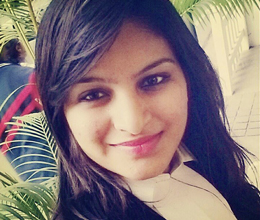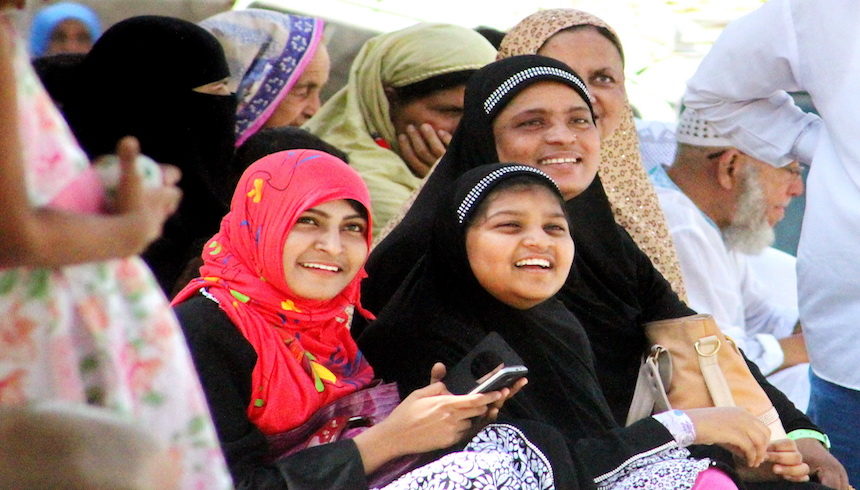Triple Talaq
“This Article has been written by Tanu Rathor, student of Delhi Metropolitian Education affliated to Guru Gobind Singh Inderprastha University.”
The “so-called” triple talaq is an absurdity that militates against the words and spirit of the Quran –Tahir Mahmood
A five-judge bench would be set up by Supreme Court to hear and decide on the question raised by NDA government relating to the practice of polygamy, triple talaq and nikah halala among Muslims. “This is such an important issue and can’t be scuttled,” Chief Justice JS Khehar said.
The three-judge bench observing that the four points suggested by the Centre should be dealt with by a larger bench. A bench of Chief Justice J S Khehar and D Y Chandrachud and Justices N V Ramana was settling the finer points and procedure for beginning final hearing on triple talaq from May 11. Advocate Madhavi Divan answered four questions framed by the Centre for the court’s consideration.
- Whether triple talaq and polygamy are protected under the fundamental right to religion guaranteed under Article 25 of the Constitution?
- Whether right to religion is subject to important fundamental rights like Right to equality (Article 14) and Right to life (Article 21)?
- Whether personal law can be termed as a law under Article 13 of the Constitution?
- Whether triple talaq and polygamy are compatible with India’s obligations under international treaties and covenants to which it is a signatory?
The Supreme Court has laid down the ground rules for the parties to argue, for the first time. Although, in the last hearing the Supreme Court had cleared that it would not touch the domain of Uniform Civil Code, but clarified it wants to adjudicate on triple talaq.
Muslim Marriage
Muslim marriage is known as Nikah in Islam. Nikah is a contract between a husband and wife, which is laid down by Nikahnama. There should be a proposal from either side and the proposal should be accepted, and is supported by consideration (Mahr). Mahr is an amount of money which husband promises to give his wife’s father either before marriage or later. Thus Muslim marriage is contract unlike Hindu marriage, but it is still a controversy, as few jurists believe it to be sacred.
Procedure of Talaq
Talaq in its orginal sense means repudiation or rejection but under Muslim law it means a release from marriage tie immediately or eventually. According to Muslim Personal laws, talaq are of two types, talaq-ul-sunnat and another is talaq-ul-biddat.
Talaql-ul-sunnat is considered most approved form of divorce, in which husband has to pronounce “I divorce thee” in the state of purity, known as the tuhr period. Tuhr is a period when a woman is free from her menstruation course). There must be three successive pronouncements of the formula of divorce with a gap of thirty days and each pronouncement should be in the tuhr period.
Talaq-ul -biddat is known as triple talaq. It is considered as most disapproved form of talaq and is believe to be sinful form of divorce. It introduced by the Omeyyads, in order to escape from strictness of law. Shia Law recognizes talaq-ul-biddat though they too think it to be sinful.
In order to be included in this form of talaq one should pronounce “I divorce thee thrice” or in separate sentences. Remarriage is not allowed as woman has to remarry another man and be divorced from him. It can be pronounced in the absence of wife and over phone too.
Divorce Ground for Women
In Muslim Personal Laws males have three divorce grounds where as female have only one ground i.e., Talaq-e-tafweez. Primarily, the power to give divorce belongs to the husband who can delegate his power to his wife either absolutely or conditionally. But again, it is husband’s choice to delegate this power to his wife or not. This delegation does not deprive husband itself to pronounce talaq.
From Shah Bano Case to Shayara Banu Case
The status of Muslim women in India is poor since the beginning. Being minority it was difficult for Shia women to draw judiciary’s attention towards them. Three decades ago a new hope arose with the case of Shah Bano.
There is no doubt about the striking resemblance between the Shah Bano case in 1985 and Shayara Banu case of 2016 as regards the plights of the victims. In both the cases Muslim Women sees judiciary’s attention towards biasness against women under the Muslim Personal Law.
The condition of women under the Muslim Personal Law is terrible. They are deprived socially as well as financially.
In Shah Bano Case, it was held that Muslim Women can claim maintenance Under Section 125 of Criminal Procedure Code. It was argued by her husband that according to Muslim Personal Laws a husband is not bound to pay any amount to his wife except Mahr. In the present case, husband gave divorce to his sixty two years old wife by uttering triple talaq after four decades of marriage.
After thirty years of Shah Bano case, women’s social status is questioned in Shayara Banu case. Muslim Women are socially deprived, either in the form of multiple marriages or triple talaq. Shayara Banu also suffered the same adversity of instantaneous divorce. Her husband gave her divorce after 15years of marriage.
In the present case maintenance was not an issue but she challenged triple talaq (talaq-ul-biddat), polygamy and nikah halala (marriage of woman with another man and the divorce with his man so that she can marry her former husband). Her petition wants Supreme Court to declare all three evils unconstitutional as they violate fundamental rights guaranteed in Article 14, 15, 21 and 26. The Shayara Banu Case has been extensively discussed on Legal Parley in a previous post that can be accessed here.
Misuse of Instantaneous Talaq
“Just hours after Shagufta Sayyd was married, her new husband told her he was having a relationship with another woman. He was clear the two would have no future. only married her to please his mother. So he said, talaq, talaq, talaq, and that was it. Sayyd still insists on using her husband’s surname, until she can end the marriage officially in an Indian court.”
Like Shagufta Sayyd there are many Muslim women who are cursing their fate because their status and destiny both are dominated by Muslim Personal Laws. The invidious procedure of triple talaq has affected the Shia Muslim Community at large.
In Rashid Ahmad v. Anisa Khatoon, one day the husband pronounced triple talaq in absence of his wife, “I divorce Anisa Khatoon for ever” and repeated this three times. Four days later, the talaqnama (divorce deed) which stated that three divorces (i.e., talaq-ul-biddat) were given.
Status of Triple Talaq in other Countries
The invidious procedure of triple talaq is only recognized by Shia, all over world. Though they accept it to be sinful, still they practice it habitually.
Triple talaq is banned in twenty one countries including our neighboring countries of Pakistan and Bangladesh. Tunisia, Algeria and the Malaysian state of Sarawak, do not recognize divorce pronounced out of courts, whereas Turkey and Cyprus have adopted secular family law. In country like Sri Lanka where Sunni holds only 10% of Muslim Population doesn’t recognize instant divorce after 2006 amendment. In India religious minority are in terror of changes, as they believe they will lose their religious identity. Like other countries, Muslim Laws in India should be fairly codified to cure women from abuse.
Indian Muslim’s Outlook
According to Times of India report 50,000 Muslim men and women have signed the petition seeking ban on this procedure. The petition spearheaded by Bhartiya Muslim Mahila Andolan (BMMA), has sought the National Commission for Women’s intervention to stop this “un-Quranic practice”. The recent report of BMMA quotes that 92 per cent Muslim women supported an end of unilateral talaq, which is given over phone, text message and even email. Co-founder of BMMA believes “Women’s rights are equally protected by the constitution, but Sharia’h courts and qazis do not allow women to enforce their rights”
Picture Courtesy: Wikimedia







